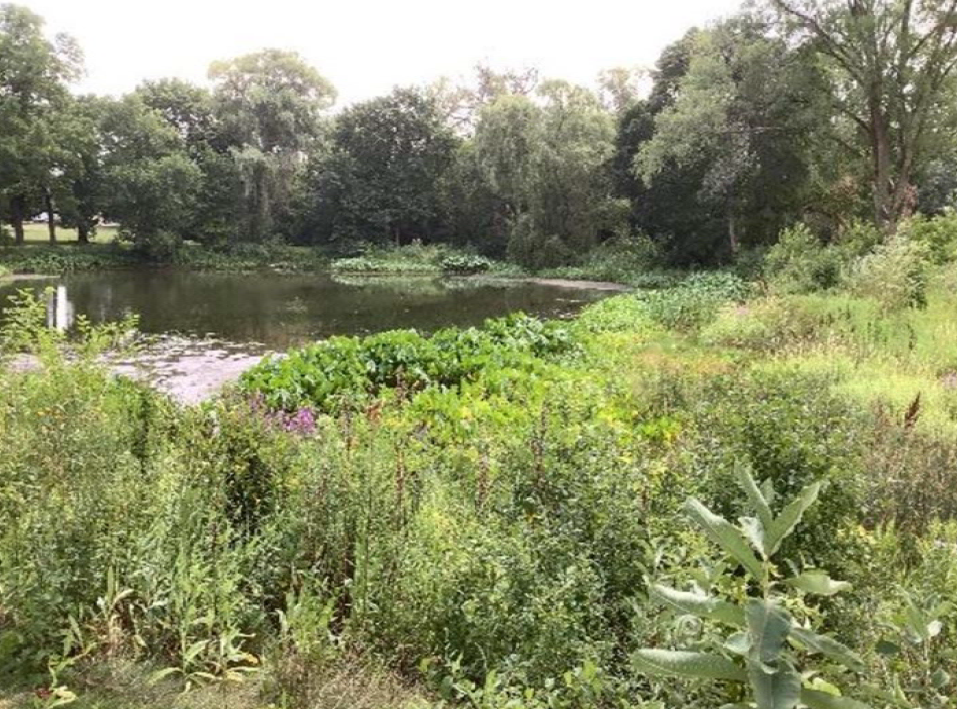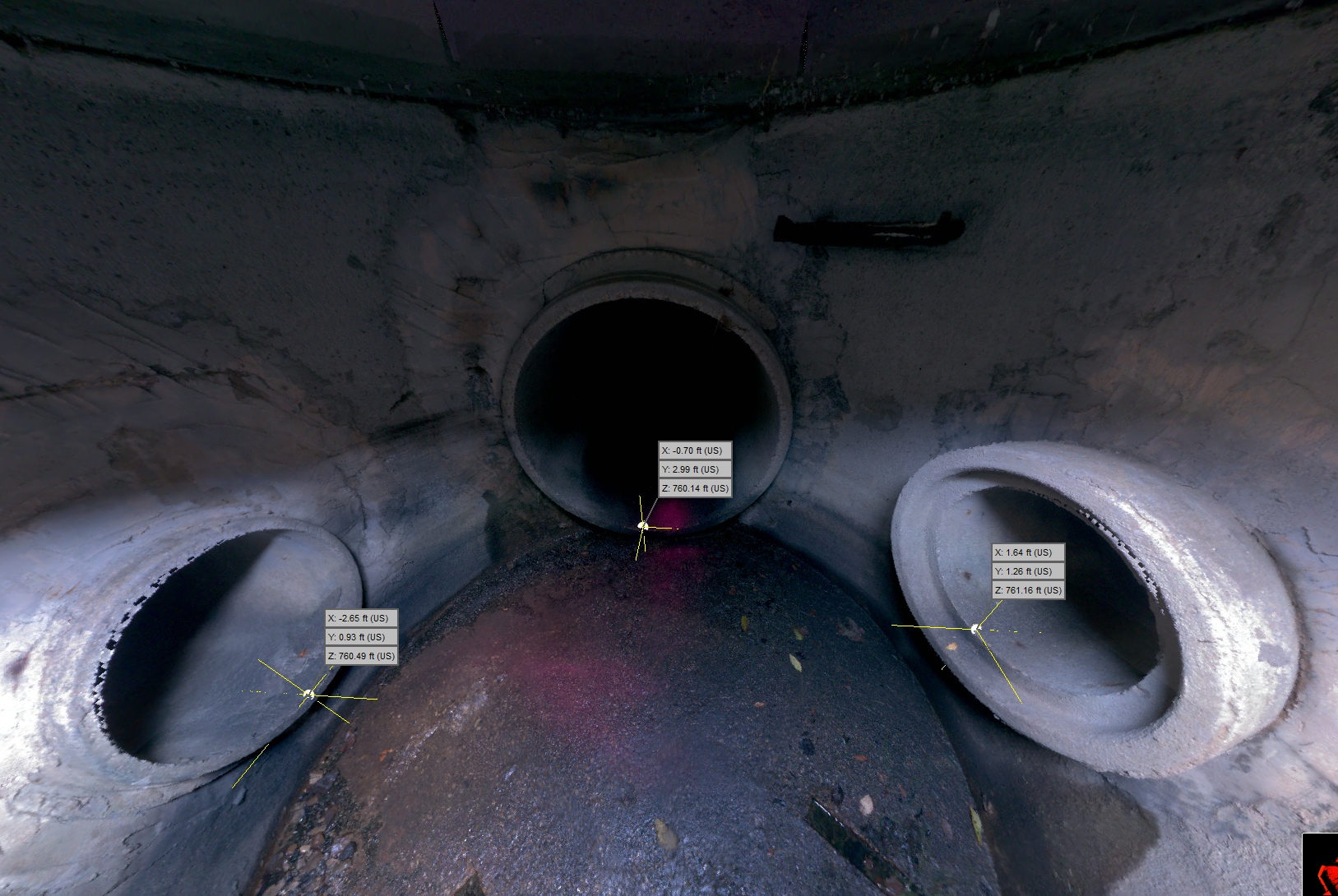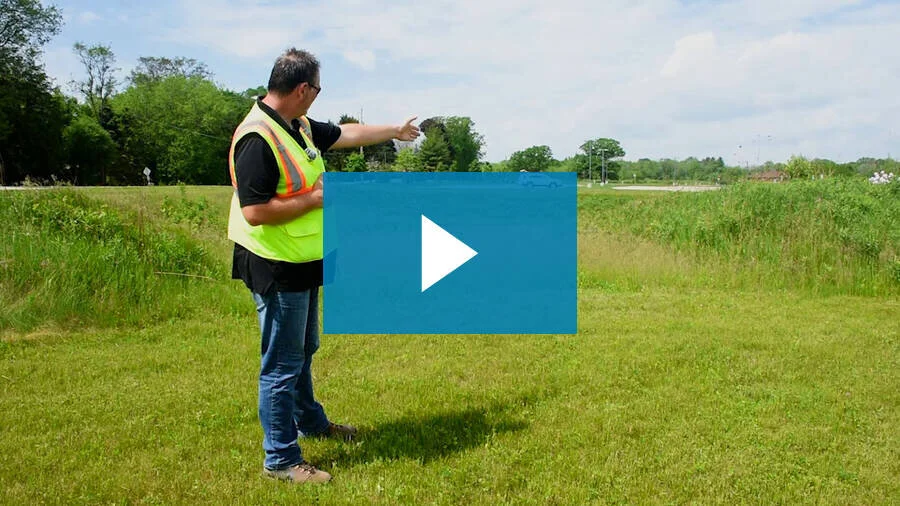The Honey Creek Headwaters and Stream Restoration Project is the revitalization of the City of Greenfield’s most commonly used park – Konkel Park. The project area included a 0.92-mile segment of Honey Creek that had been overgrown with buckthorn, filled with sediment, and had no natural inputs. Using natural channel design, the streams are now operating hydraulically like a normal stream.
Illicit discharge detection and elimination (IDDE) is part of the Municipal Separate Storm Sewer (MS4) Permit, and annual IDDE outfall inspections are required for all regulated MS4 communities to ensure that stormwater discharges do not pollute our waters. Learn how R/M can support your community in collecting accurate inspection data!
Managing rain events and the high flows that come with spring can be a daunting task for municipalities. R/M prioritizes a streamlined approach to managing infiltration and inflow to avoid flooding on private properties; identify flow, investigate where it is coming from, and put a plan into action for removing the I/I source. Learn how planning for the rainy season can help prevent backups in residents’ basements
On December 30, 2022, the Environmental Protection Agency and the United States Army Corps of Engineers announced the final “Revised Definition of ‘Waters of the United States’” rule. This new rule will be effective on March 20, 2023. The following is an overview summary of similarities, changes, and how to move forward.
The Wisconsin DNR Urban Nonpoint Source & Storm Water Management (UNPS&SW) Planning Grant Program applications are due April 17, 2023.
Most municipalities and older developments own wet retention ponds that were built in the early 2000’s. It may be time to evaluate how much sediment has accumulated in those ponds and whether or not it is time to dredge them to remove the accumulated sediment. Learn how to find out if it’s time to dredge your storm water pond.
The Milwaukee Metropolitan Sewerage District (MMSD) recently partnered with District landowners to install green infrastructure devices through the Green Infrastructure Partnership Program. The program was established to help MMSD reach its goal to implement 10 million gallons of green infrastructure annually and achieve TMDL compliance. Learn how R/M helped the District make progress towards those goals through an efficient, streamlined green infrastructure inspection and maintenance program.
All applications for FFY 2023-2026 BIL funding through the STP, Local Bridge, and/or CMAQ Improvement Programs are due by 5:00 PM on Friday, June 3, 2022. Learn what your municipality needs to know to take advantage of the $1.3 billion in federal funding now available for WI transportation projects.
President Biden signed the Bipartisan Infrastructure Bill into law on November 15, 2021. This $1.2 trillion bill includes $550 billion in new spending over the next eight years, roughly doubling the impact of status-quo infrastructure funding levels. Learn how this new funding will impact your next municipal infrastructure project.
The U.S Treasury released final guidance on how municipalities can use American Recovery Plan Act (ARPA) funds. Learn which additional infrastructure projects are eligible for ARPA funding under the final rule.
The US Treasury distributed the first allotment of American Rescue Plan Act (ARPA) funds in June of this year, however, many Wisconsin municipalities are taking a wait-and-see approach when it comes to allocating their payment. However, ARPA Legislation states that municipal relief funds must be allocated by December 2024, and early planning is paramount to getting your projects off the ground on time. Here are answers to the questions we’ve heard most often surrounding ARPA to help keep your planning process moving forward.
The City of Watertown recently embarked on a comprehensive capital improvement plan to rehabilitate their aging storm sewer system. Learn how they used state of the art technology to complete a smarter system inventory.
To reduce waterway pollutants, comply with MS4 permits, and meet TMDL goals, communities should regularly inspect and perform proper maintenance on all storm water management devices. Illicit discharge inspections are critical to identifying unwanted pollutants flowing through your storm sewer system.
Follow along with R/M’s Mark Bruns as he performs a storm water device and illicit discharge inspection, identifies common impairments, and shares best practices for maintenance.
The U.S. Department of the Treasury recently released updated guidance on the use of American Rescue Plan Act Local Fiscal Recovery Funds. The Interim Final Rule offers an expanded interpretation regarding the types of sewer, water, and broadband infrastructure projects that qualify for funding. Find out if your next infrastructure project is eligible for Local Fiscal Recovery Funding.
The American Rescue Plan Act will provide historic, direct federal payments to all 19,000 municipal governments in the United States. For some municipalities, this relief will offer a once-in-a-generation opportunity for community betterment. To help you consider your options and get a head start on necessary preparation, our experts developed a list of 25 water and sewer related infrastructure improvement projects that may be eligible for ARPA relief funding.
It’s February in Wisconsin, and you know what that means! ‘Tis the season for polar vortexes, snow blowers, and MS4 Annual Reports. All permittees must submit their 2020 Municipal Separate Storm Sewer System (MS4) Annual Report to the Wisconsin Department of Natural Resources (WDNR) by March 31, 2021 .
Navigating the path toward effective storm water management is essential to protecting the health of your residents, preserving your community’s natural resources, and safeguarding local homes, businesses, and infrastructure against the catastrophic damage caused by flooding and erosion. To help guide you in your efforts, we’ve compiled a list of a few of the best resources available for communities at every step of the process.
We know that providing your residents with quality public resources, safe roads, and clean water is essential to creating a thriving community. We also know that locating the funds necessary to make improvements to local infrastructure can be incredibly difficult. This year, consider these financing opportunities to help you maintain, improve, and grow your community resources.
Beaver Creek is a tributary to the Milwaukee River running through the heart of the Village of Brown Deer. Recently, the Village partnered with R/M to transform a struggling eight-foot-wide channel of the creek, and its adjacent multi-use pedestrian trail, into a thriving community corridor.
In March 2018, the Milwaukee River Basin TMDL (Total Maximum Daily Load) was updated to include specified limits for bacteria. The TMDL states that 90% of fecal pollution found in the river basin is attributed to a combination of rural and urban runoff from unknown sources. These pollutants enter the storm sewer system and flow untreated toward local streams, lakes, and wetlands, posing an ongoing threat to the overall health of our communities. Learn how R/M can help your community minimize the impact of bacteria in your waterways.





















